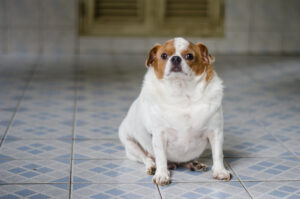The Importance of Canine Weight Management
When you own a dog, you become responsible for their health. Sometimes that means taking your canine companion in for regular checkups at their veterinarian in the greater Philadelphia area. Sometimes it means seeking out a specialty veterinary healthcare hospital when something more serious is needed. And sometimes it means making the right sort of decisions on a daily basis to keep your dog at a healthy weight.
own a dog, you become responsible for their health. Sometimes that means taking your canine companion in for regular checkups at their veterinarian in the greater Philadelphia area. Sometimes it means seeking out a specialty veterinary healthcare hospital when something more serious is needed. And sometimes it means making the right sort of decisions on a daily basis to keep your dog at a healthy weight.
While it may not seem like a big deal to feed your dog pizza crusts or the trimmings from your porterhouse, over time those extra calories can pack on some extra pounds. Sure, videos of chubby dogs may be common online, but it’s best to keep your dog at their ideal weight. This is because excess weight can affect your pet’s health and quality of life, both long-term and short-term.
The best way to keep your dog at a healthy weight is not to let him or her get overweight in the first place. Controlling your dog’s dinner portions is a great idea, as is feeding them only healthy snacks like carrots, celery, apple slices, and the appropriate amount of biscuits. But diet is only one part of healthy weight control—exercise is crucial, too! Regular long walks will help your dog maintain his or her weight by burning off calories and keeping their metabolism up.
Speaking of dog metabolisms, they slow down as your pet ages. Yes, if there’s one thing all dogs have in common, it’s that they age—and you want them to stay healthy as they start to become older. Dogs at a healthy weight live longer lives, studies have shown, but as the years creep up on them, so can their weight, and that can lead to a host of health complaints—such as osteoarthritis. Osteoarthritis is common in larger dogs, but heavier dogs of all sizes have a higher risk of contracting the disease. Joint problems can really affect dogs’ quality of life, so the best thing to do is keep them at a healthy weight to reduce their likelihood of joint pain as they age.
Weight management is also an important part of caring for your dog after they’ve had a surgery. Sedentary dogs are more likely to put on unhealthy weight, and your dog may be less eager to play or move after going through a medical procedure. That’s why VRC in Malvern, PA offers rehabilitation for your dog, including weight management. We have a canine gym just for your dog, including a sandbox to help provide resistance as they run and play. VRC’s therapeutic exercise sessions are for post-surgical canine patients, but your local veterinarian can refer your dog to us if you believe they are in need of some rehabilitation to improve their weight and quality of life!
Located in the greater Philadelphia area, VRC is a specialty veterinary healthcare hospital. If you’re curious about our canine gym or our weight management and rehabilitation services, give us a call.






 Email
Email
